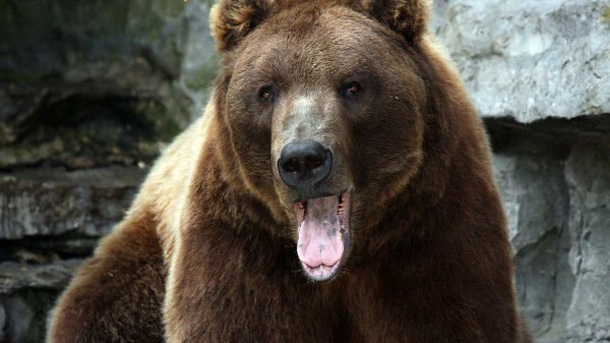To Bulgarians, the Holy Apostle Andrew the First-Called is a highly revered saint, chosen, in days of yore, as the patron saint of family. He is known to have preached in what are today the lands of Bulgaria. He was also honoured by the Bulgarians who emigrated to Italy in the 7th century, some historians say. 30 November is the name-day of peopled called Andrey, Andrea, Andrian, Andriana, Purvan… In Greek, the name Andrew means brave, courageous, valorous. That is why it is also the name-day of people bearing names like Hrabur, Hrabrin, Hrabrina – all of them derived from the word hrabur, brave. On the threshold between autumn and winter, the day of St. Andrew is connected with rituals performed for health and for abundance.
 In Bulgarian folklore St. Andrew is bonded to the bear – the biggest predatory animal prowling the woods in our lands. One of the most popular legends tells the story of his seclusion up in the mountain to fast and pray. A bear would appear every day. The saint tamed it, and, one day, mounted it as he would a horse, and rode it to the monastery nearby to take communion. According to another tale, also very popular, one early morning, St. Andrew yoked an ox and started plowing his field. But a bear came out of the forest and ate the ox. So, the saint grabbed the powerful animal, overpowered it and put it to the yoke. And, with a bear harnessed in place of the ox, he continued to plow the field.
In Bulgarian folklore St. Andrew is bonded to the bear – the biggest predatory animal prowling the woods in our lands. One of the most popular legends tells the story of his seclusion up in the mountain to fast and pray. A bear would appear every day. The saint tamed it, and, one day, mounted it as he would a horse, and rode it to the monastery nearby to take communion. According to another tale, also very popular, one early morning, St. Andrew yoked an ox and started plowing his field. But a bear came out of the forest and ate the ox. So, the saint grabbed the powerful animal, overpowered it and put it to the yoke. And, with a bear harnessed in place of the ox, he continued to plow the field.
The rituals performed on St. Andrew’s Day are all about bears, and the idea that as of 30 November, the day begins to grow by one millet or maize grain a day. That is the reason why it also goes by the name of Mechkinden, Bear Day, Edrey, Edrevden, from edur, big. In Bulgarian tradition, the bear is a symbol of fertility and birth. That is why young brides would not be allowed to work on this day. A bear hair would be used to banish fright. More often than not, fur hairs would be bought from bear keepers who would make the rounds of villages with their animals until late autumn. When bear keepers came with their bears, that was thought to be a good sign, boding abundant snow, a good harvest and health to people and animals. People would pay the bear keeper so “a bear would tread on them for health”. The kuker, mummer games and carnival rituals also have a bear and bear keeper among their characters.
To this day, in many towns and villages different cereals and pulses are boiled in one big pot on St. Andrew’s Day, usually a pot made of clay. People put in a few grains of everything, like beans, lentils, peas, millet, wheat, barley, oats, spelt, maize. This is done so there will be a bountiful harvest, so everything that is sown shall grow. There is another popular ritual – throwing boiled maize “out of the chimney”. The maize is for the bear: “Here you are, bear, take this boiled maize, so you don’t eat the raw maize, so you don’t eat our livelihood, so you don’t eat people!” Prominent Bulgarian ethnographer Dimitar Marinov writes that in different parts of Bulgaria there existed different kinds of customs. For example, in the region of Nova Zagora popcorn is made and wheat boiled – again for a good harvest and for the bear to eat. In other places only wheat was boiled and handed out to relatives and neighbours. In some towns and villages near Teteven besides maize, fruit was also put into the pot – pears, plums, pumpkin seeds. In Panagyurishte, when they threw maize “up the chimney” people would say: “To your health, Mama Bear!” In some parts of the country, the wheat that was to be ground up later, was first cleaned, leaving the big grains so there will be more flour.
English version: Milena Daynova
Photos: archiveThe Philip Koutev National School of Folk Arts is not just any school - it is a talent laboratory. It is the first school not only in Bulgaria but in the Balkans for professional study of folklore. It is located in the heart of the beautiful town of..
Scientists from the Sorbonne will study the cultural heritage preserved in the Regional Ethnographic Open-Air Museum "Etar" , informs public broadcaster BNT. In March this year the French scientists together with experts of REOM "Etar" will study elements..
The day of St. Tryphon (1 February old style, 14 February new style) is celebrated by vine growers, falconers and gardeners in Bulgaria. Trifon Zarezan comes around with vine pruning and wine drinking St. Tryphon is believed to help..

+359 2 9336 661
